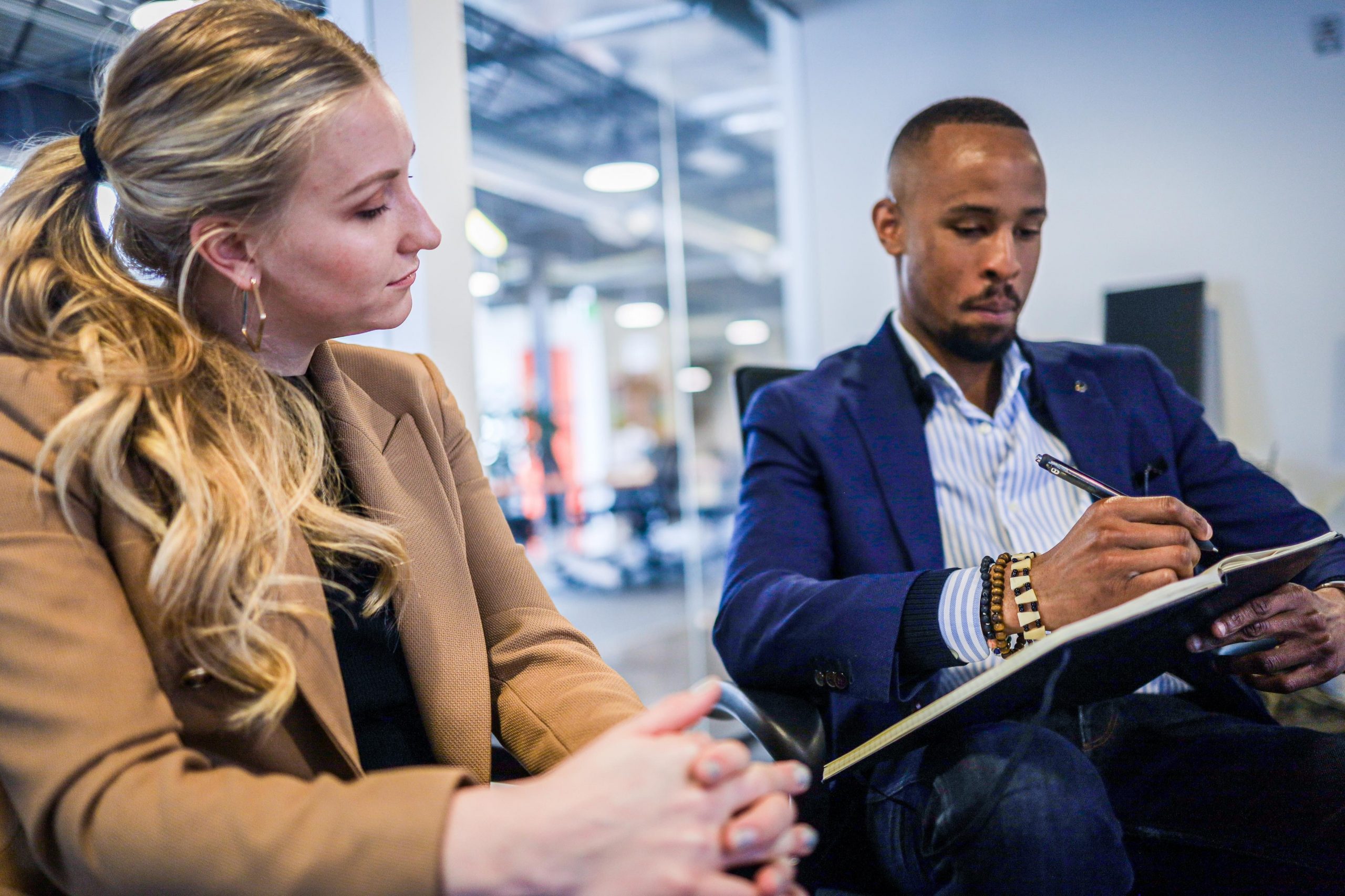When it comes to finding and hiring the very best talent, small business owners don’t always have the luxury of a talent specialist or HR professional to guide the process. And when hiring is down to one person (you) it’s hard to know what to look for in a candidate, what questions to ask, and how to determine whether someone is a good fit for your team. And whilst having to deal with these challenges, entrepreneurs also have to make sure they don’t let their own bias creep in during the process.
But how can founders make sure they’re keeping their views objective when we all have a level of unconscious bias? Of course, there are methods like blind CVs (where candidates omit personal information such as age, gender, and race information), as well as introducing skills challenges, but even these methods aren’t foolproof when it comes down to eliminating bias. AI could be the answer.
How can AI be unbiased but humans can’t?
In many cases, AI can reduce humans’ subjective interpretation of data, because machine learning algorithms learn to consider only the variables that improve their predictive accuracy, based on the training data used. So if you want a candidate who has a specific set of skills and who has experience working with particular software, then AI filtering systems will measure that variable and that variable only. Nothing else will be taken into consideration like age, the university they graduated from, where they’re based, etc. Meaning, you find the most suitable candidates without letting your own idea of who this person should be, or what they should look like, get in the way and potentially hinder the process by dismissing an ideal candidate.
That being said, using AI doesn’t completely eradicate bias from the hiring process. Whilst it’s helpful, AI can still be biased (although it’s significantly less so than humans). This is because humans create AI systems and will often be subject to their own unconscious bias when building the technology. It also won’t work if your variables or inputs are biased.
What software is available for those wishing to debias the hiring process?
There’s lots of debiasing software for founders to choose from, all covering a range of different functions. Some will help you filter through applications to focus on candidates with the right skillset (regardless of education, number of years of experience, or gender), which can help reduce bias significantly by only focusing on the core skills needed to complete the role.
There’s also software that can help debias internal communications content and job descriptions to make the text more inclusive and appealing to all audiences. Research has shown that masculine language, including adjectives like “competitive” and “determined,” results in women ‘perceiving that they would not belong in that work environment.’ On the other hand, words like “collaborative” and “cooperative” tend to draw more women than men.
Additionally, there’s software available that can debias skills-based tests for candidates so you can see how this candidate might perform in the role. Skills-based tests are one of the greatest ways to establish which candidates really want the job and help those hiring to compare two candidates who both might be suitable for the role.
What are the drawbacks of using AI?
They don’t highlight people’s skills
Whilst AI systems can help reduce bias in the hiring process, they shouldn’t be solely relied on to find the right candidates or improve a bad interview process. An important part of finding talent is how they interact with their team members and people, so it’s important you ask questions that highlight the candidates’ people skills. How calm are they in a crisis? How do they give difficult feedback? Can they empathize? All of these questions are important if the role you’re hiring for requires interaction with other team members.
They don’t cover up for bad interview processes
And to reiterate, AI hiring software won’t benefit you if your hiring or interview process is already flawed. One thing to ask yourself is “Are the questions we’re asking bringing out the best in the candidates I’m interviewing?”. If your questions are standard – e.g. why do you want the role, what could you bring to the team – you’ll struggle to find who really shines. Boring interview questions leave candidates rehearsing the same spiel over and over again, and sometimes even what’s already on their CV. Even worse, it can leave them feeling unenthusiastic about the role.
Make sure you’re asking scenario-based questions as well as the standard job interview questions to show you how the candidate might perform in the role. These questions might be “Tell me a time you’ve dealt with a difficult situation at work, what happened and what did you do?” or “Tell me about an unsuccessful project, what happened and what would you change if you had the chance to re-do it?”
These questions allow candidates to really shine and show you how they might react in difficult situations.
AI doesn’t completely eradicate bias
As mentioned at the start of this article, whilst AI can help reduce bias, the systems are not completely bias-free. For example, if one of your criteria for filtering through candidates is a certain number of years of experience, the AI software will show you the most relevant candidates, but the criteria in itself is discriminatory because it excludes younger workers who might tick all the necessary skills boxes but haven’t had as many years of experience as someone more senior. So when using AI, teams should keep this in mind.
To conclude, AI is a fantastic tool to help companies attract a more diverse pool of candidates and reduce unconscious bias in the hiring process, but it does have its limitations, and founders (or anyone who is involved in the hiring process) must be aware of these drawbacks before making these systems a core part of their recruitment process.









